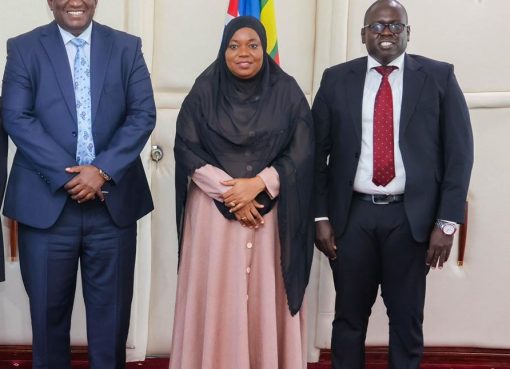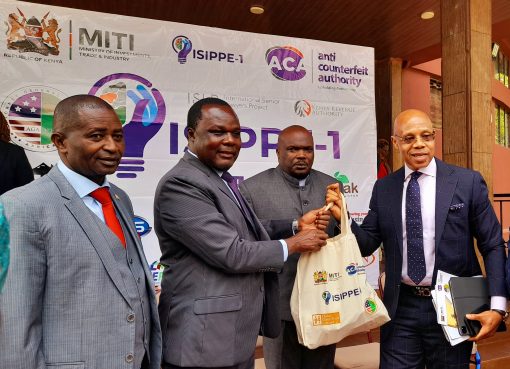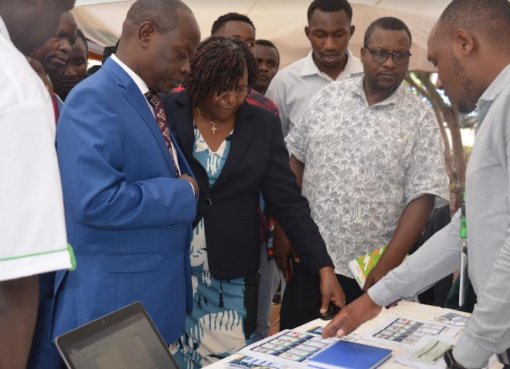The Bible Translation and Literacy (BTL) organization has launched school books in Digo, Duruma and Pokomo languages during an elaborate ceremony held at the Kwale County Stadium.
Mother tongue is the language that a person has grown up speaking from his/her early childhood or a person’s native language.
The Digo and Duruma communities are found in Kwale County while the Pokomo primarily inhabit Tana River County and young children can soon read books in their mother tongue languages in schools and at homes.
The school books targeting the three communities found in the coastal region seek to boost first language literacy among school children in remote areas.
Rev. Peter Munguti the National Director BTL says the grades 1, 2 and 3 school books covering all the subjects in the three languages have been developed under the Mother Tongue Education Programme for Indigenous Languages in Kenya (MEPIL).
He says the project is aimed at improving literacy and numeracy in learners in their mother tongue and also to promote the acquisition of English as a second language before English becomes the medium of instruction from Grade 4 onwards.
Munguti says the books unveiled were culturally sensitive, environmentally acceptable, and attractive and to the level of targeted school grades required adding that the manuscripts were submitted to the Kenya Institute of Curriculum Development (KICD) for evaluation.
He says the main objective of the program by BTL is translating primary school books in Chidigo (Digo) Chiduruma (Duruma) and Pokomo languages as a way of promoting and preserving local community languages in the new school curriculum.
In addition he says 60 education officers and about 100 teachers of grades 1-3 in Kwale and Tana River counties were trained on mother tongue teaching pedagogy for smooth take off.
“We also appeal to the ministry of education to embrace and scale up this programme to other devolved units such as Marsabit,Homa Bay,Bungoma, Lamu, Elgeyo Marakwet and Samburu among many other counties where many marginalized communities are domiciled,” he said adding that stakeholders need to support the role ‘our indigenous languages play in the teaching and learning spaces’.
Munguti says the MEPIL programme which commenced in the year 2015, is a BTL project that advocates for the use of mother tongue as the language of instruction during the early stages of learning in the Kenyan Education System, as recommended by the government education policy in the Primary School Curriculum.
The national director noted that BTL is a faith based charitable organization that is involved in facilitating language development, scripture translation and literacy programmes among the minority communities in the country.
He says they have spent the last seven years developing indigenous and literacy activity materials, training teachers and carrying out mother tongue advocacy in 18 pilot schools in Digo, Duruma and Pokomo.
“Often the people from minority communities live in isolated areas and lack adequate facilities and infrastructure therefore BTL is currently working in over twenty-five of such communities,” he said adding that over the years, research has shown that the mother tongue is vital in framing the thinking and emotions of people.
Munguti says the initiative of school books in mother tongue languages in the long run seeks to integrate to the educational system the teaching and learning of indigenous languages.
“As a country we need to revitalize indigenous languages that have long been ignored and despised and almost lost within our culture,” he said.
The BTL senior official observed that indigenous language instruction, especially in lower primary level improves overall school performance, cognitive development, problem solving, and creativity among the young learners.
Munguti says mother tongue being a person’s native language and thus the medium of communication that a person is most familiar with should obviously be used for providing education.
“Unfortunately this is not what has been happening over the decades but embraced the use of either a major commercial language or a colonial language as the medium of instruction in our schools,” he said.
He went on “learning in a foreign or second language also brings a sense of alienation from one’s own culture and heritage and thus denies young learners from getting a better sense of their cultural background”.
He says English and Kiswahili has for long have been the medium of instruction in schools in the country with students especially in marginalized communities remaining aloof from the benefits that come with being educated in their mother tongue.
Kwale Governor Fatuma Achani who attended the launch of the school books welcomed the initiative to embrace mother tongue as a school language especially in lower primary levels.
Achani who was accompanied by her Deputy Chirema Kombo and Lunga Lunga MP Mangale Chiforomodo termed the move a ‘step in the right direction’ and if implemented in true spirit will enhance the learning capabilities of the pupils and make education a wholesome experience.
She says the move is not about the pride associated with local languages but demolishing the idea that foreign languages are the only way to learn and that learning English should not stop anyone from learning our mother tongue as well.
“As a country we should actually embrace mother tongue as a medium of instruction in lower primary education because first and foremost it should be noted that a child understands mother tongue well and if it is instructed in that language the transition to formal education would be smooth and easy,” she noted.
She stressed that if pupils were taught in primary schools with their mother tongue as the medium of instruction such a move will definitely improve their education outcome later in life.
By Hussein Abdullahi





